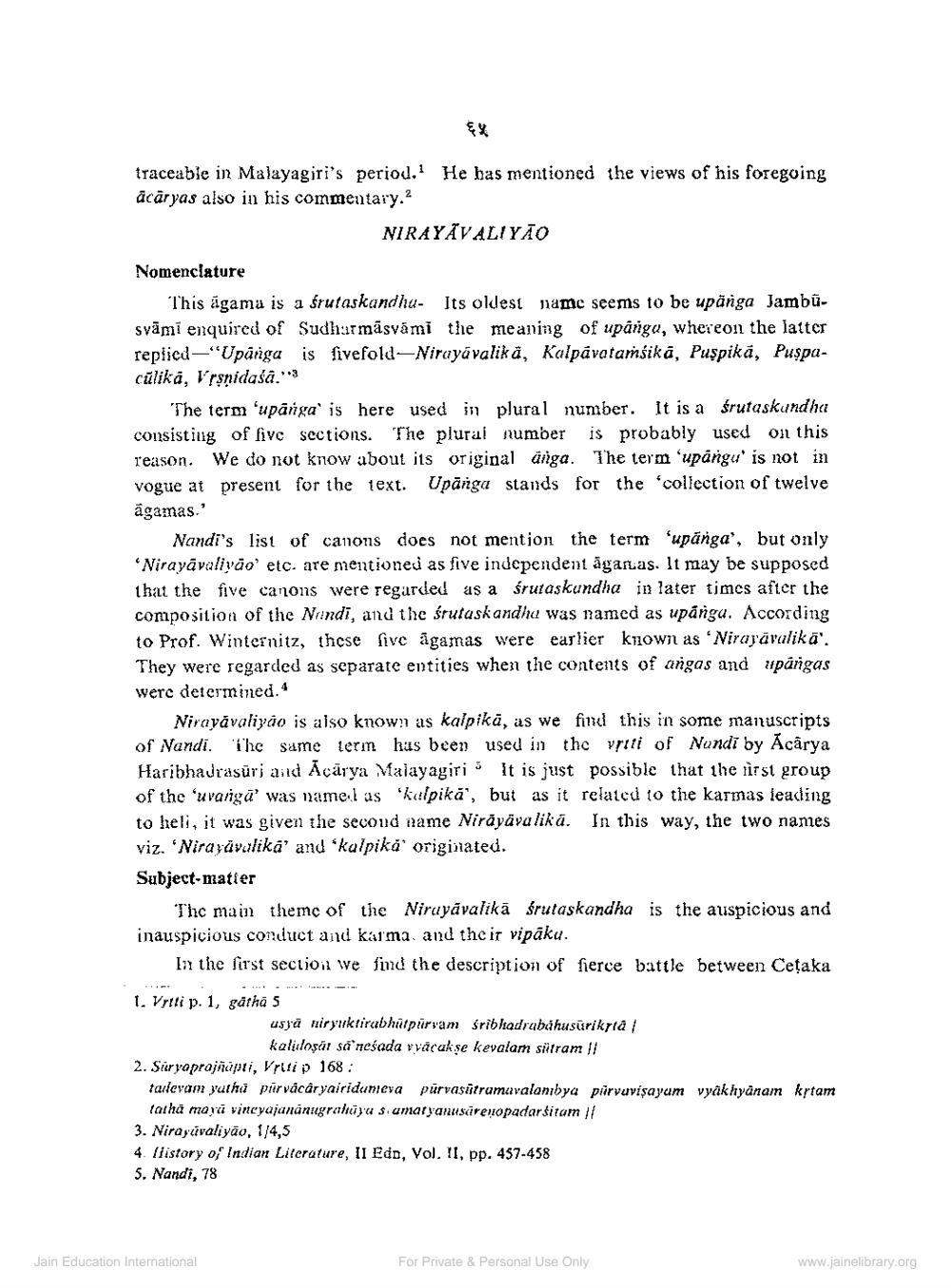________________
traceable in Malayagiri's period. He has mentioned the views of his foregoing ācāryas also in his commentary.
NIRAYAVALIYO
Nomenclature
This agama is a śrutaskandha- Its oldest name seems to be upanga Jambūsvāmi enquired of Sudharmāsvāmi the meaning of upanga, whereon the latter repliců—“Upānga is fivefold-Nirayávalika, Kalpavatamśikā, Puspikā, Puspacūlika, Vrsnidaśa.
The term 'upānga' is here used in plural number. It is a frutaskundha consisting of five sections. The plural number is probably used on this reason. We do not know about its original anga. The term 'upangu' is not in vogue at present for the text. Upānga stands for the 'collection of twelve agamas.'
Nandi's list of canons does not mention the term 'upanga', but only Nirayāvaliyão' etc. are mentioned as five independent äganas. It may be supposed that the five canons were regarded as a śrutaskundha in later times after the composition of the Nuindi, and the śrutaskandha was named as upanga. According to Prof. Winternitz, these five agamas were earlier known as 'Niravavalika'. They were regarded as separate entities when the contents of angas and upangas were determined.
Nirayávaliyao is also known as kalpikā, as we find this in some manuscripts of Nandi. The same term has been used in the writi of Nundi by Acārya Haribhajrasürj and Ācārya Maiayagiri : It is just possible that the first group of the 'uvarigā' was namel as 'kalpika', but as it related to the karmas leading to heli, it was given the second name Nirāyāva lika. In this way, the two names viz. Nirayāvalika' and 'kalpika' originated. Subject-matier
The main theme of the Niruyávalikā śrutaskandha is the auspicious and inauspicious conduct and karma and their vipāku.
In the first section we find the description of fierce battle between Cetaka 1. Vitti p. 1, gatha 5
usya niryuklirabhüpürvam śribhadrubahusürikria /
kaluloso sa nesada yvacak şe kevalam sitram !! 2. Sir yaprajnapti, Vrtip 168:
tallevam yuthi purvācâr yairidunieva pūrvasātrumavalanıbya piirvuvisayum vyakhyanam krtam tarha moyi vineyajananugrahüy'u s umat yanusareitopadaršitam // 3. Nirayuvaliyão, 1/4,5 4. listory of Indian Literature, II Edn, Vol. II, pp. 457-458 5. Nandi, 78
Jain Education International
For Private & Personal Use Only
www.jainelibrary.org




